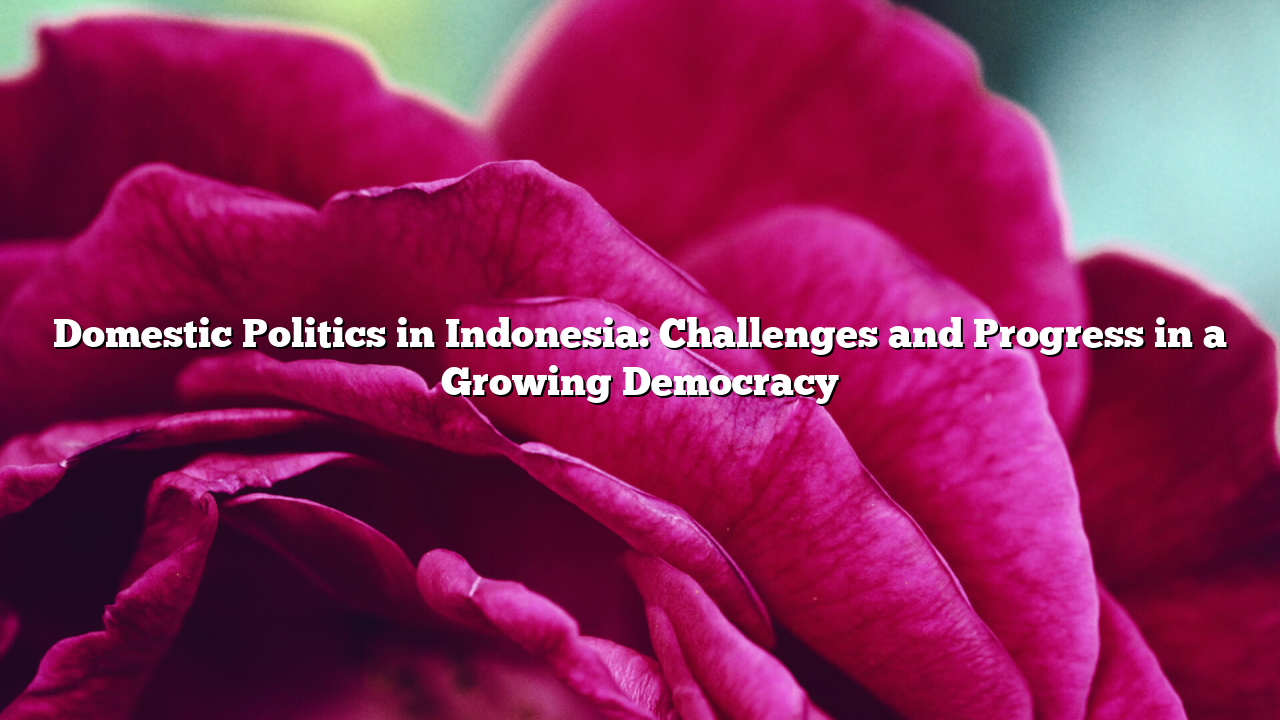Indonesia, the world’s third-largest democracy and the largest in Southeast Asia, has undergone a remarkable political transformation since the fall of the New Order regime in 1998. Once ruled under an authoritarian system, the country has since embraced democratic principles, holding regular elections and allowing Pattimura4d for a vibrant civil society. However, like many young democracies, Indonesia continues to grapple with significant domestic political challenges.
One of the key features of Indonesian politics is its multi-party system. With more than ten parties regularly competing in national elections, coalition governments are the norm. This often leads to compromises in policymaking, as no single party dominates the political landscape. While such diversity reflects the pluralistic nature of Indonesian society, it can also hinder swift political decision-making and contribute to political instability.
Corruption remains one of the most pressing issues in Indonesia’s domestic politics. Despite the establishment of the Corruption Eradication Commission (KPK), which has investigated and prosecuted many high-ranking officials, corruption continues to permeate various levels of government. Political patronage, vote-buying, and misuse of public funds still occur, particularly during regional elections. These practices undermine public trust in democratic institutions and weaken the rule of law.
Decentralization, introduced in the early 2000s, was intended to bring government closer to the people and improve service delivery. While it has empowered local governments and increased regional representation, it has also created new challenges. In some cases, local leaders have exploited their authority for personal gain. Moreover, disparities in governance quality and development outcomes between provinces remain a major concern.
Religion and identity politics have also played a growing role in shaping domestic political discourse. Although Indonesia is constitutionally a secular state with a motto of “Unity in Diversity,” political actors increasingly mobilize religious sentiments for electoral gain. This trend became particularly evident during the 2017 Jakarta gubernatorial election, where religious and ethnic issues overshadowed policy debates. The rise of identity politics poses a threat to national cohesion and undermines the inclusive spirit of Indonesian democracy.
On a more positive note, youth engagement in politics has been increasing. With more than half the population under the age of 30, Indonesia’s youth represent a powerful force for political change. Social media platforms have enabled young people to express their views, organize movements, and hold politicians accountable. Campaigns for transparency, environmental protection, and anti-corruption have gained traction thanks to youth activism.
The upcoming general elections in 2029 are expected to test the resilience of Indonesia’s democratic institutions. Key issues such as economic inequality, environmental degradation, and education reform will likely dominate public discourse. Meanwhile, the growing influence of oligarchic interests and media ownership by political elites raises concerns about the fairness of the democratic process.
To strengthen its domestic politics, Indonesia must continue to reform its political and legal institutions. Ensuring the independence of the judiciary, protecting press freedom, and safeguarding anti-corruption bodies are essential steps. Moreover, civic education should be prioritized to nurture informed and responsible citizens.
In conclusion, Indonesia’s domestic politics is a dynamic and complex arena marked by both progress and persistent challenges. While democratic consolidation is underway, efforts must be redoubled to ensure that democratic principles are upheld, institutions are strengthened, and all citizens enjoy the benefits of a just and accountable government. As the country moves forward, the active participation of its people — particularly its youth — will be key to shaping a more transparent, inclusive, and democratic Indonesia.
